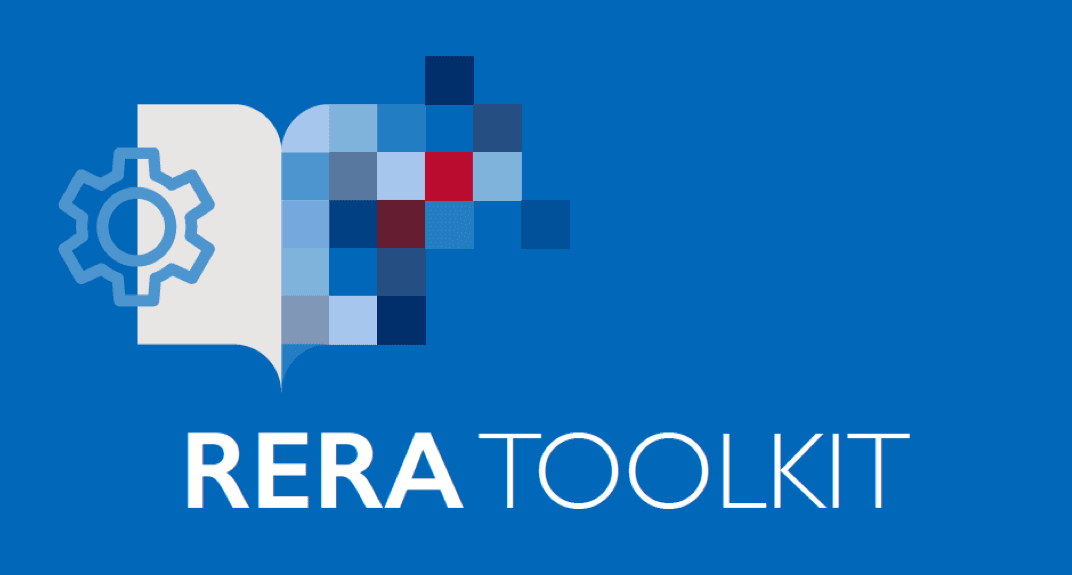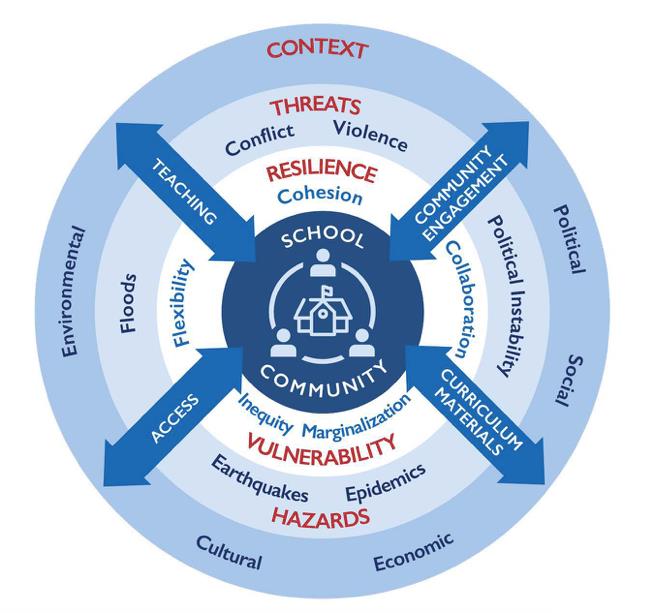
USAID RERA Conceptual Framework
A RERA represents an innovation in the critical first step of program or activity design—better understanding the situation of education systems and learners within complex and volatile contexts. RERAs have played an important role in shaping USAID Country Development Cooperation Strategies and solicitations
The RERA methodology uniquely integrates elements of conflict analysis, disaster risk assessment, resilience analysis, and political economy analysis. It involves the collection and analysis of secondary and primary data. Primary data collection can draw upon a limited, purposive sample of school communities and be conducted in the field in less than two weeks. The RERA can also be adapted for fully remote implementation.
The RERA Toolkit was designed particularly for conflict- and crisis-affected contexts, but it is adaptable for use anywhere, as risks are always present and can be manifest or latent.
Read the RERA Brief and download the RERA Toolkit and learn more about the RERA here.
Training
Under the auspices of ECCN, Exterion co-designed and has co-facilitated USAID training on the RERA for USAID staff and USAID Implementing Partners.
Final Reports
The RERA El Salvador was commissioned as a pilot by USAID/El Salvador in March 2016 to provide a snapshot of how the education sector was interacting with various risks, particularly gang violence and insecurity. This RERA reached 238 respondents in 14 schools in 8 municipalities.
USAID/Bangladesh commissioned a RERA in October 2019 to understand the impact of the Rohingya influx on pre-primary through secondary education in Bangladeshi schools in Cox’s Bazar district. The RERA reached 900 respondents through 141 focus group discussions and 33 key informant interviews in six sub-districts across Cox’s Bazar.
USAID/Dominican Republic commissioned a RERA to gain a broader understanding of the risks, needs, assets, and capacities of the education sector in targeted areas of the country, with a focus on violence. The RERA reached 30 schools in 26 municipalities in 9 provinces. The RERA reached 1,305 respondents through 172 focus group discussions and 38 key informant interviews.
USAID/Colombia commissioned a remote RERA in May 2020 that had a focus on challenges to providing equitable, quality education to all school-aged children, including native Colombians, Venezuelan migrants, and Colombian-Venezuelans in receptor communities impacted by the Venezuelan migrant crisis and COVID-19. The RERA reached 457 respondents through a quantitative survey and 201 respondents through follow-up, qualitative interviews.
Iraq (2022)
Sesame Workshop commissioned Exterion to remotely implement a RERA to inform planning for their Ahlan Simsim Iraq activity, which focused on early childhood development and youth media and direct services. The RERA worked with local partners and focused on Ninewa, Anbar, Salah-al-Din, Kirkuk, Baghdad and Basrah governorates.



